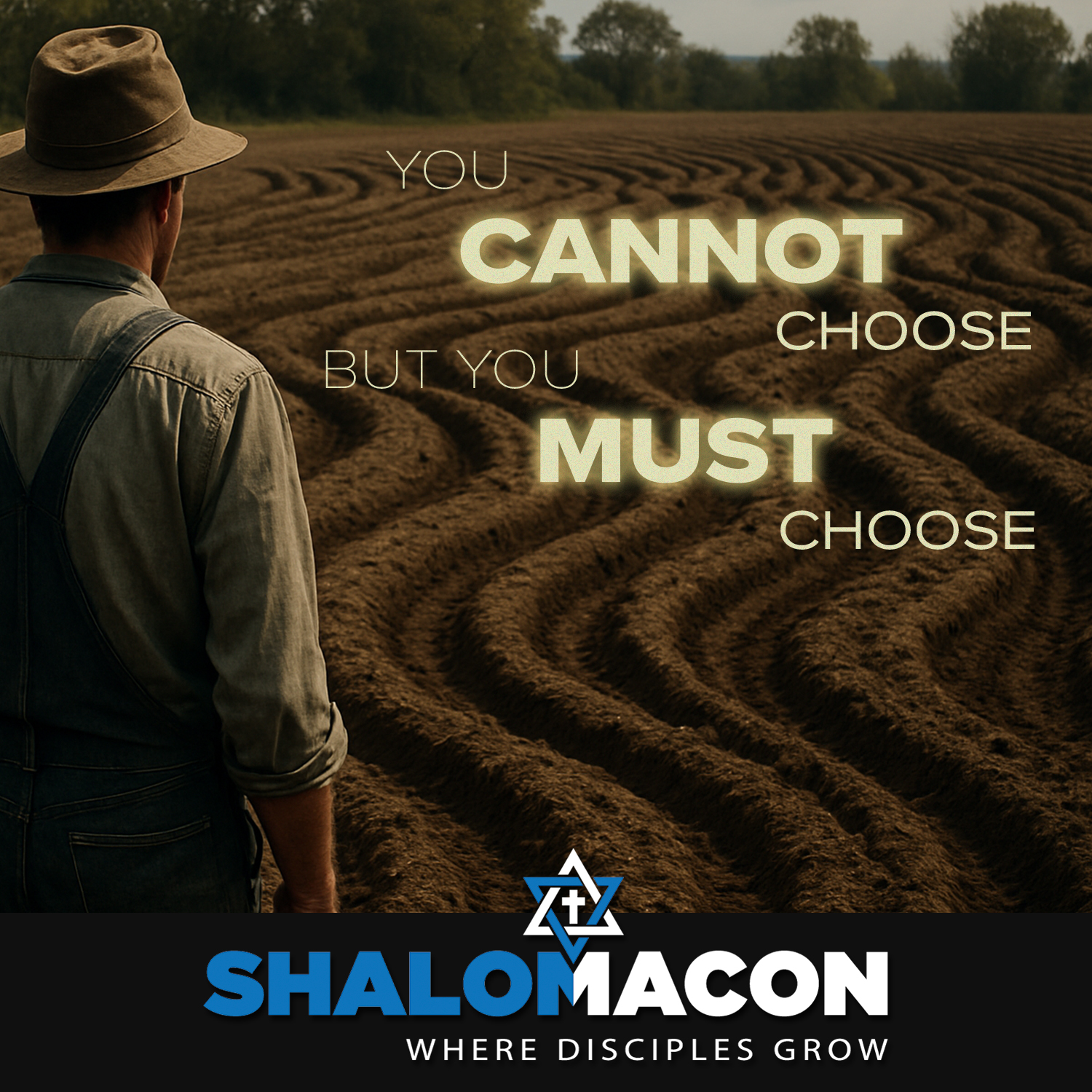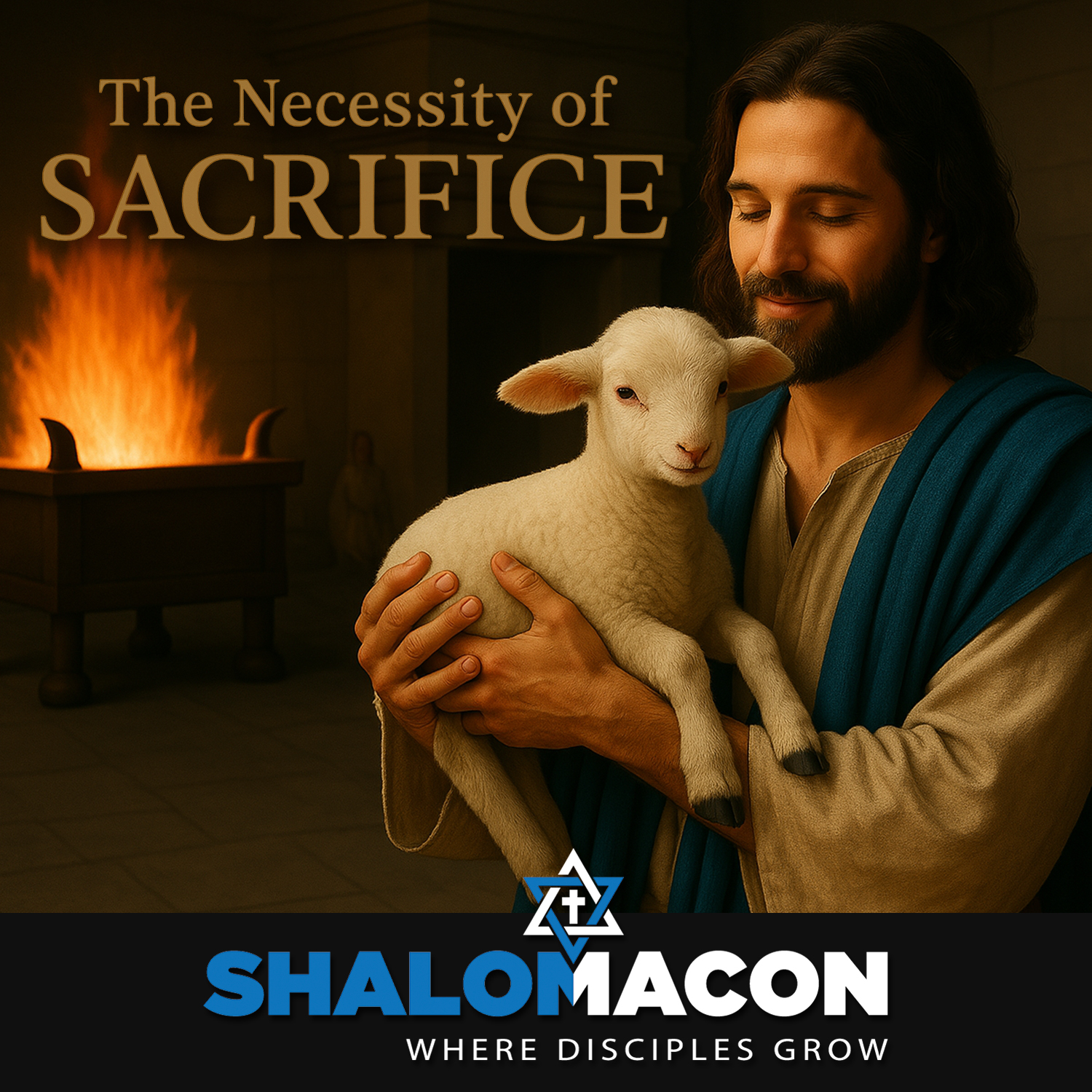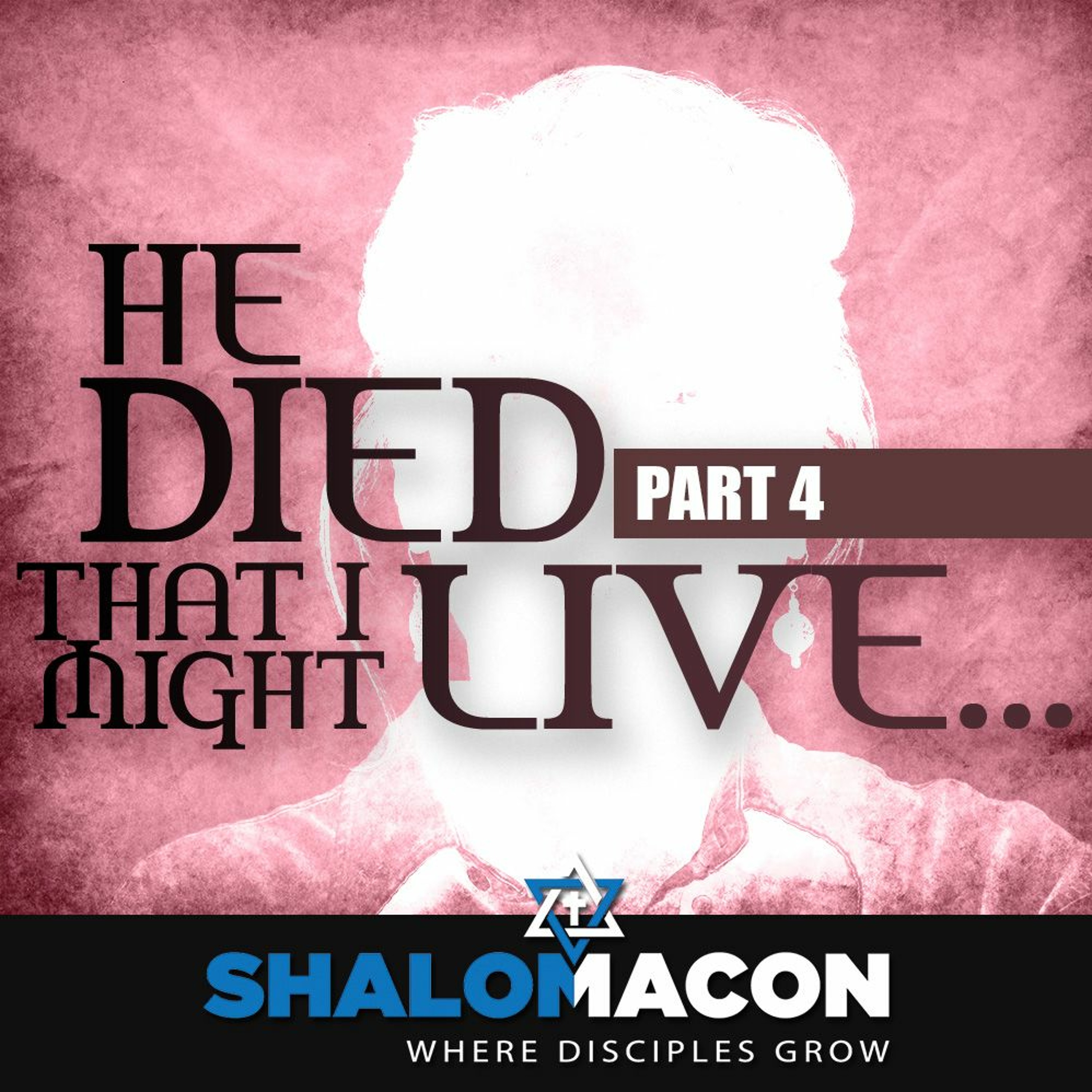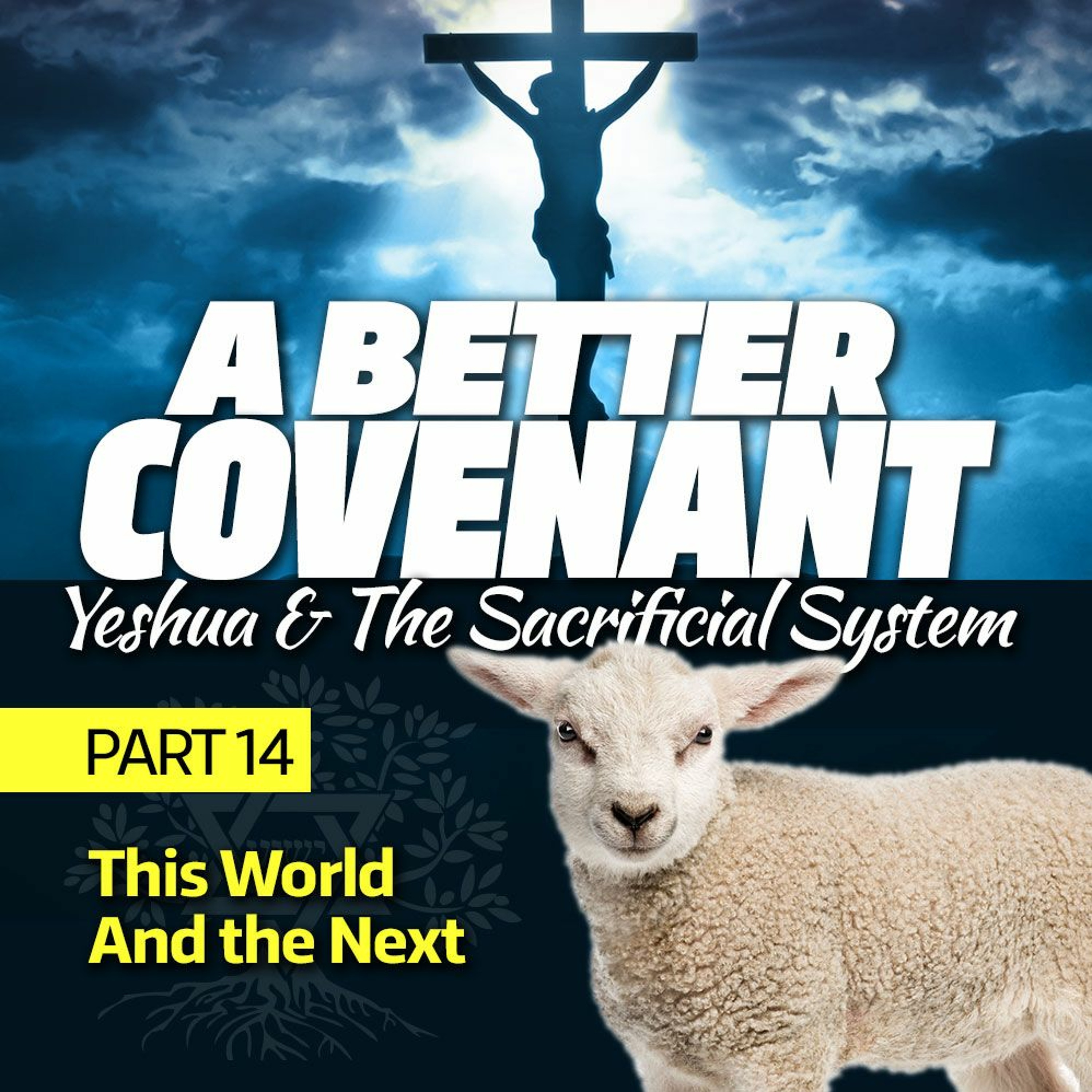Episode Transcript
[00:00:05] Speaker A: Aaron Kushner was diagnosed at age 3 with a very rare aging disease. You've probably heard of it, called Progeria.
It dramatically ages the body ahead of its time. He weighed 25 pounds and was as tall as a three year old when he died in 1977, just two days after his 14th birthday.
His dad wrote a book, you may know it, by Rabbi Harold Kushner, that was called When Bad Things Happen to good people.
12 million or 4 million copies later, and 12 different languages translated.
It addressed, among many other things, the idea of theodicy.
Theodicy is a nice, big theological term for the existence of evil.
How can there be good?
How can there be evil in the world when God is supposed to be so good?
And I'm not necessarily advocating for Rabbi Kushner's conclusions. May his memory be for a blessing. He died just a couple years ago at the age of 88. I haven't read that book in 20 years, but I stumbled across this week a quote from When Bad Things Happen to Good People. And it's so important and so memorable because his son Aaron died, and Rabbi Kushner, he was a rabbi, wrote these words.
I am a more sensitive person, a more effective pastor, a more sympathetic counselor because of Aaron's life and death.
And I would give it all up, all of those gains, in a second, if I could have my son back, if I could choose, I would forego every ounce of spiritual growth that came from that pain.
But I cannot choose.
But I cannot choose those words.
And I read them, and I thought, how many of us in this room could tell a similar story?
I know that some members of our community in this room could tell the exact story because they've lost children.
For others of us, there are stories in our lives of regret and hurt and abuse and maybe embarrassing behavior or heartaches and loss and horrendous family of origin stories. You grew up in a terrible, terrible home environment, which is really the number one way that people get really messed up in the world.
It's your first classroom. It's where you're supposed to learn what love looks like and how to trust people and what security is and all those things. And when those lessons are not imprinted at that age, it really, really, really leads many people down a very harmful path.
But in all of those situations, I've always had a difficulty because there's a religious mindset or idea that has really challenged me, bothered me, actually.
We're taught to say, in all terrible, bad circumstances, we're taught to say, God willed it.
He wanted it that way because that's how it happened.
Now, it is often true that through very difficult situations, not abuse, mistreatment, all kinds of difficult situations, that we definitely learn lessons. That's true. Right.
But there's a big difference between saying God willed it and God is with us in it.
There's a very big difference.
But that's actually not even my point.
Kushner's point is to say, I did grow a lot through all of these things.
My son's death, of all things. I'm more pastoral, sensitive. I'm in tune with others, and I would give it all up, give up just to have him back.
If I could, I would choose.
If I could forego every ounce of spiritual growth, I would choose to give it up. And I think that's very honest, and that's very human and probably represents so many people's feelings who have gone through incredible suffering in life.
I don't really care about the lessons. I would have rather had it not happen.
If I could choose, I'd choose another path. That would be a different path.
But the power and relevance for what I want to tell you today is in Rabbi Kushner's next phrase, but I cannot choose.
And I know this is an extremely heavy opening for a joyful holiday weekend. Shavuot celebrations start tomorrow night. But Today is the 48th day of the Omer. We're almost done with this, with this counting the last of this, the last of our ascent. This is the last teaching of the seven weeks. And I really don't want to miss an opportunity for you to end this powerfully. Those words, but I cannot choose.
I want you to think of some of the energy that we all waste wishing that we could play the tape in reverse, rewriting a horrendous childhood or a marriage that never fell apart, or the abuse we never endured, or the word we wish we hadn't said or the step we wish we hadn't taken. Kushner's line, it absolutely says, well, what has happened has happened.
I cannot change, undo, or choose a different set of circumstances.
It's so true and powerful. But it is actually what our rabbi says that is even more powerful and even more important. And it's the short message that I want to give you today that is drawn from the book of Luke 9:62. You cannot choose, Rabbi Kushner says. And Rabbi Yeshua says, but you must choose.
962 contains what might be one of the most practical verses in all of Scripture. No one who puts his hand to the plow and keeps looking back is fit for the Kingdom of God.
Now, before you start worrying about your eternal security, because you look back at things with concern in your life, this isn't about your salvation.
That's not what's being said. This isn't about whether you're going to heaven when you die.
There are many interpretations. But I'm going to tell you what I see. Based on Rabbi Kushner, based on life, being a student of life and relationships, what Yeshua is saying is something much more immediate and much more urgent for you.
It's about whether or not you're going to be able to receive the blessings of God, not just there, but here in this world.
More importantly, whether or not you will be positioned to be an example and a light for other people to see the Kingdom down the road. Because here's what I mean. When Yeshua talks about being unfit for the Kingdom of God, he's talking about your capacity to experience what the Kingdom can bring you. Even now, we are not in the Kingdom. I recognize that. The Kingdom is not here. This is not realized. Eschatology.
The Kingdom is down the road. And yet we cannot treat the Kingdom, the future, the potential, as just only some future destination that we're all heading toward. We are as disciples called to live as many snapshots of what the Kingdom may look like. Your life is supposed to represent that. Do you know that many of Yeshua's parables are a healing? That he would do something that he would do. It was like a little window of the Kingdom opened up and then it closed. And then he would always come back with repent, or he'd give a parable. We're not there yet, but yet we should look like it. And what he's saying is, you cannot do that if you're always looking back.
We are disciples, and I want you to think about the image that he uses. Darren created this slide for this message.
It's perfect.
A farmer with his hand on the plow. I doubt many of you have ever plowed with an ox, but I don't want to make any assumptions, but from this illustration, you can see, and that is perfect. This is what a plowed field looks like when you're doing this.
Wait, yeah, whatever. Anyway, it works.
You're plowing in front of you. That's the point. Okay? And you're.
It doesn't work.
It's a very simple, deep example. You create crooked lines, and you make the next pass even more difficult. And the work becomes Inefficient and ineffective and ultimately unproductive. But here is what makes the metaphor extremely powerful to take note of is that the farmer does not, you know, he's not condemned for looking back. That's actually not what's happening.
He's just told you will be unable to do the work effectively.
He doesn't lose his identity as a farmer. He doesn't get kicked off the land. He just can't accomplish what he needs to. And that is exactly what happens to us in life.
You don't have to raise your hand, but you know it.
We talked last week about Achreyut, about the effect of after, of looking at the after the other and the ever after responsibility for these things and all of that. And when you understand, ach, when you begin to see that so much of life depends on where your gaze is set, you understand the power of this. You can't do these things with your backward gaze.
So you ask, I ask how many of us? I hope it's no one except me, because I do it.
Are you looking back at things that have happened? Are you looking forward to what can happen through you?
That's the alternative. Are you focused on wounds that you've received or healing you can offer? Do your circumstances of the past haunt you or do the future choices before you empower you? These are the choices and you can choose that. As a matter of fact, you must.
This Egypt to Mount Sinai. There's a great lesson in here because this isn't just a nice teaching from Yeshua, this foundational lesson God taught to an entire nation as they went from Egypt to Sinai during the very 49 days that we're talking about here.
Think about Israel.
400 years, give or take. Slavery, generations of oppression, depression, abuse. Their children had been murdered, their labor had been exploited, their dignity systematically removed.
Their family had been destroyed. Their cultural identity is obliterated. If anyone had the right to look back with bitterness, it is them. With resentment, with regret, it was them. If anyone could have justified spending their energy complaining about the injustices of the past. It was a community of former slaves. And there were some micro incidents where we had some of that. But we like the leeks and the fish and the speck. Moses. That was a minority voice.
Notice what God does immediately upon the Red Sea crossing. He begins orienting them toward the future.
It is behind you.
Orienting toward the future. The pillar of cloud doesn't point them backwards.
The manna doesn't fall as a reminder of something in the past. It's fresh Every morning it's a sign. We're moving forward. We're moving forward. I got you. I'm with you. We're going forward.
Was it bad in Egypt?
Yes, it was bad in Egypt. It was very bad in Egypt. Do they wish it hadn't happened? Probably.
Can they change any of it? Absolutely not. Not a single day, not a single decree, not a single whiplash, not a single insult, not a single death. Nothing can change.
What they did know and what they experienced firsthand was that God was with them.
And even more importantly, he was with them as they moved forward. There was nothing worth looking back. You know, I've talked many times about the Jewish calendar's opportunities for to have these elevation moments. We've talked about that. If you don't get this one, there's another one coming. It's down the road. It's in the month of Elul. We're getting ready for the holidays. But there's actually a big difference there because when you think about it, the holidays in the fall, Rosh Hashanah, Yom Kippur, this is about repentance. What is repentance? Well, we have to consider this stuff. We actually do have to think about it and we have to repent. So it's sort of a turning around to face it and deal and then turn around. This is something totally different.
This is a forward thinking exercise. This is an ascent during the 49 days. This is not a turning back, it's a turning forward and it's a reorientation to the future. That's a difference. This is important.
That's why God gave us these two incredible seasons of introspection.
You need to deal with the crap, there's no question about that. But you don't stay on it.
And I know we know this, but for seven weeks we've been counting, you know, up from Passover to Shavuot. Every day is building. The entire trajectory is all forward looking. And that's exactly what Israel needed and it's exactly what we always need.
Nothing about you, nothing about you has to be defined by anything behind you. And a lot of people, especially those people with horrendous family of origin stories, it's so hard to break it, but that's not the way it has to work. And it's a very unhealthy way for it to work because you become unfit for the kingdom of God.
And I told you what that means.
Now, I know this community.
I know faces in here.
I know almost every traveler who's here. And I've met some wonderful new faces. I know a lot of people online and one thing I know is I know your stories.
As I was preparing it, this teaching, I surveyed people's faces sitting in the seats and I thought about your stories, every one of them. I thought about your victories, of course, but I also know about your struggles.
I also know about your seasons of heartbreak and disappointment. And I know about the stories about marriages and financial struggles and a kid who completely broke your heart and all kinds of things, health diagnosis that have been really difficult. I know the family of origin stories. I know about all the things in the past that persist.
And I know also in my life of course about words that I wish I could take back and things that I wish I hadn't done. And I think about relationships that I wish I could repair.
And for all of us, myself included, if I could just do a little magic wand and just have it all go away and change it, I'd do it in a heartbeat. If I could restore your childhood or rebuild something lost or resurrect some dream, I do it without hesitation. But you cannot choose what is is.
The past is fixed.
It is immutable. It is unchangeable. You cannot undo, you cannot unsay, you cannot unfeel.
But what will be is between you and God.
And it involves looking forward. And it is impossible at this time to not use my favorite line of all history.
It is what it is, but it will be what you make it.
This is what Yeshua said.
He just said it much more eloquently.
It involves developing these reorientation practices and all the things we spent the last seven weeks talking about in our six weeks. If you haven't heard them, go back and listen. You need to the daily disciplines of life that train you to focus your gaias on the good.
To find delightful moments in the world to celebrate the fact that you have breath, to learn to tame your tongue so that you don't create further insult in the world. To be able to recognize and be a responsible adult who recognizes the consequences of decisions, predicts them before they happen. Because you already learned the lesson. All of this stuff, that's what we've spent time doing. It involves investing more in you and expecting less from others. The most like simple thing.
And it involves now being someone willing to live without looking back. Not because the past does not matter, it does. And everything that's ever happened to you, good or bad, it all matters. And it's all a part of making you what you've become today. But what you don't need you, Chuck. That's it.
It's not that easy. I understand.
It's work. It's like plowing a field. You understand that. That's why you keep your gaze forward. You gotta plant new seeds, you gotta do new things. And perhaps most importantly, it involves learning to live in the present without being focused on yesterday or even so much on tomorrow.
This is the day the Lord has made and I will rejoice and I will be glad in doesn't mean you don't have an optimistic and future outlook, but you got this.
Zehayom. This is the day, man.
With all of its imperfections, with all of its limitations, its challenges. This is the day. And our response isn't to wish, man. I wish it was different.
I'm not making fun of anyone. I'm saying it's so tiresome, it's so difficult to actually deny reality. It's actually a better description, it's a better definition of insanity than that old stupid thing about saying, well, you do the same thing expecting different results. That's not insanity. No, insanity is denying reality.
That's what that is.
And so we embrace it all and we take it.
We chuck what we don't need. We put our hands on that plow, we hinge up or yoke up the ox, whatever that is, and we get behind it and we get ready to go every day.
And even if there's a moment that takes you on the rough ground and that you get, you look back. Fine, okay, get back in the game. Quickly.
Get back. Old James Clearism from Atomic Habits. Don't miss twice.
Don't miss twice.
So this is it.
You cannot choose the family you were born into, but you will choose the family that you build. You must.
You cannot choose the losses you've experienced, but you must choose how those losses will inform your life going forward. You must.
You cannot choose the mistakes you made, but you can choose whether they define you or refine you. You must.
You cannot choose the circumstances that brought you to this moment. But thank God for them, because here you are, and you get to make the forward choices. You must.
He who puts his hand to the plow and keeps looking back is not fit.
You will miss out.
The plow is in your hands.
This is what Paul wrote. Forgetting what lies behind and straining forward to what lies ahead, I press on toward the goal for the prize of the upward call of God in Messiah. Yeshua.
He knew it.
We know it.
The plow is in your hands. The field of your future. From this moment right here is before you.
So tomorrow is Shavuot.
Well, tomorrow night we'll celebrate not just what God gave to Israel at Sinai, but hopefully what he's ready to give you. And I'll give you a brief message about how you need to get in touch with that tomorrow night.
But I want you to learn and I want you to think about Luke 9:62. And I want you to read it. And I really want you to put it into your soul, the depths of your being.
He who puts his hand. She who puts her hand to the plow and keeps looking back will miss out.
And now you know what he means by that.
Put your hand steady and your heart open to the possibilities.
Can you do it?
You must.
Shabbat Shalom.
[00:24:22] Speaker B: I'm Darren with Shalom Macon. If you enjoyed this teaching, I want to ask you to take the next step. Start by making sure you're subscribed. Subscribe to our channel next. Make sure you hit the like button on this video so that others know it's worth their time to watch.
Last, head over to our website to learn more about Shalom Macon, explore other teachings and events, and if you're so inclined, contribute to the work that we're doing to further the kingdom. Thanks for watching and connecting with Shalom Macon.
[00:24:54] Speaker A: Sam.



